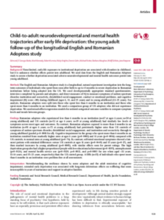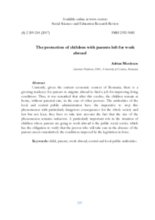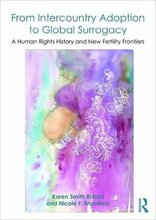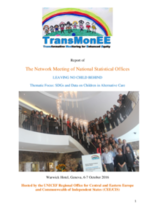Displaying 141 - 150 of 221
In this article, the researcher Charles Nelon describes the impacts of psychosocial deprivation, common among children living in institutions, on children's development and its relationship to autism.
This documentary from 'Real Stories' tells the stories of three young adults who were born in Romania and spent their early years in large-scale institutions.
This study emphasises different facets of peer exploitation awareness and experience identified in closed-type institutions, including a couple of abusive behaviours that have not been previously identified in long-term residential centres.
In this comment piece that accompanies Child-to-adult neurodevelopmental and mental health trajectories after early life deprivation: the young adult follow-up of the longitudinal English and Romanian Adoptees study, Frank C Verhulst discusses how that study "fills an important knowledge gap on the long-term mental health consequences of early severe childhood deprivation."
This study used data from the English and Romanian Adoptees study to assess whether deprivation-associated adverse neurodevelopmental and mental health outcomes persist into young adulthood.
This book presents the results of this research on more than 52,000 children placed in public care in Romania (in special protection) who receive family or residential-type protection services as well as on the children at risk of separation from their families from the source communities.
This paper examines the situation of children in Romania whose parents are going to work abroad, leaving the children without parental care.
Extracting on chronologic data, this book discusses the politics and practice of intercountry adoption starting with the state international adoption to in the 1950s continuing to present-day adoption practice and protections.
This document summarizes the content of the 6-7 October 2016 Network Meeting of National Statistical Offices. The event comprised of a number of presentations on topics related to the SDGs and data on children in alternative care.
Drawing on research from Romania, this chapter discusses the role of informal support for young people leaving care, in particular, support from other care leavers




